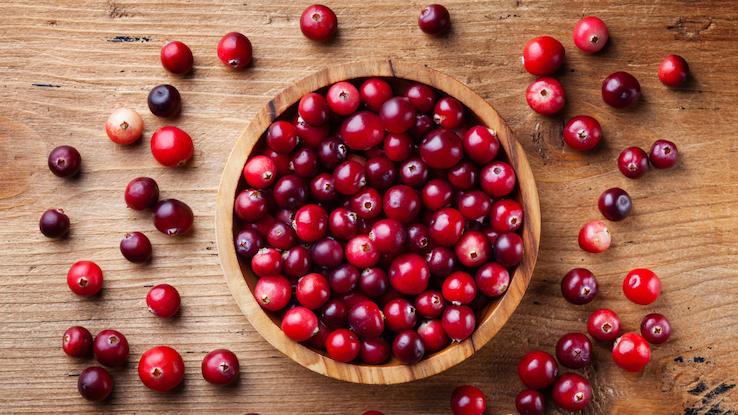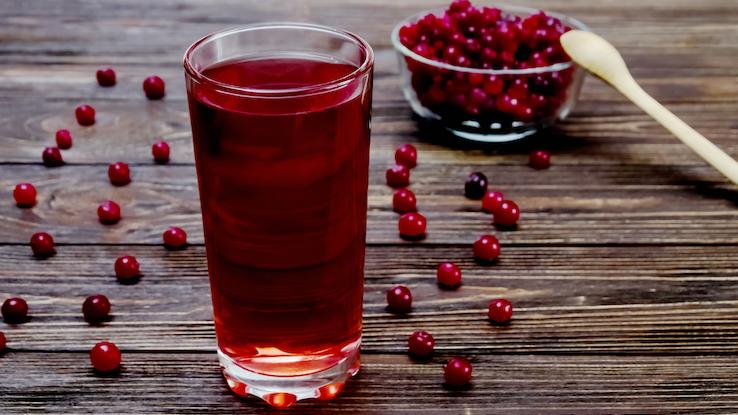
You may think of cranberries as a tasty Thanksgiving side dish. But cranberries aren’t just a once-a-year holiday treat — they’re a healthy fruit to enjoy all year round. Cranberries are high in vitamin C, antioxidants and other nutrients that can support your health.
Keep in mind that dried cranberries, cranberry juice and cranberry sauce can be high in added sugars, so choose unsweetened or lightly sweetened versions of these products. Learn about some health benefits of this tart and tasty berry.
Five Key Health Benefits of Cranberries

1. Support Urinary Tract Health
One of the most well-known uses for cranberries is preventing urinary tract infections (UTIs). A substance in cranberries can help prevent bacteria from clinging to walls of your urinary tract and causing an infection.
Just keep in mind that cranberries and cranberry juice can’t treat a UTI — once the bacteria are stuck to the urinary tract, you’ll need to see your doctor for treatment. But if you have frequent UTIs, cranberries may help prevent new infections from happening in the first place.
2. Protect Your Teeth and Gums
Cranberries can help keep your mouth and teeth healthy as well. A compound in cranberries can help prevent plaque from building up on your teeth. In fact, researchers are trying to develop a mouthwash with this compound to help prevent gum disease. Cranberries may also help decrease gum inflammation. Just remember that added sugars can lead to cavities — so drink unsweetened cranberry juice for the best results.
3. Prevent Infections that Cause Stomach Ulcers
Research has found that cranberry juice may help prevent stomach ulcers. The juice helps prevent H. pylori infections — a bacterial infection that’s a major cause of stomach ulcers. H. pylori infections can also lead to stomach cancer, so this tasty juice may help protect your stomach from cancer as well.
4. Boost Heart Health
Cranberries have anti-inflammatory powers that can help support your heart health. The phytonutrients in cranberries can help prevent long-term inflammation that puts stress on your blood vessel walls. Cranberries also have antioxidants that may lower your risk for high blood pressure and help lower cholesterol — two key benefits for heart health.
5. Lower Risk for Certain Cancers
Researchers think cranberries may help lower your risk for certain cancers, including breast, lung and colon cancer. They may do this by fighting harmful enzymes in the body or even helping to kill tumor cells, but more studies are needed to see how effective cranberries are for cancer prevention.
Keep in mind that cranberries are not a treatment for cancer. If you’ve been diagnosed with cancer, it’s very important to get treatment from a doctor. But for people who don’t currently have cancer, the antioxidant and anti-inflammatory powers of cranberries may help lower cancer risk.
When to Avoid Cranberry Products

Cranberries may increase the effects of warfarin, a prescription blood thinner. If you take a blood thinner, ask your doctor before eating or drinking any cranberry products.
There’s also some evidence that cranberries may increase the risk of kidney stones. So if you’ve had kidney stones in the past, don’t eat or drink large amounts of cranberry products.
And finally, keep in mind that while cranberries may help prevent certain health problems, they aren’t a treatment for any diseases. Talk to your doctor if you have any concerns about a health condition, or about whether cranberry products are safe and healthy for you.
Resource Links:
- “Cranberry” via National Library of Medicine
- “Cranberry Polyphenols and Prevention Against Urinary Tract Infections” via Molecules
- “Cranberry Polyphenols: Natural Weapons Against Dental Caries” via Dentistry Journal





